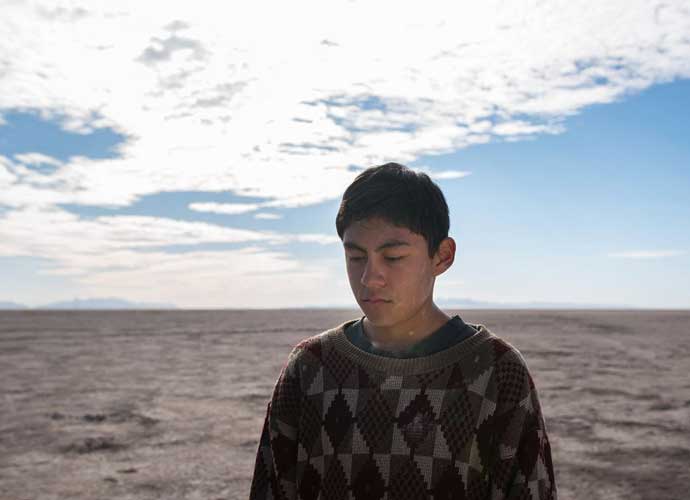‘The Box’ Movie Review: Choppy Storytelling Gets In The Way Of An Interesting Premise

2.5/5
When people think of the term “Oscar-bait,” there are many adjectives that come to their mind: formulaic, stale, cookie-cutter, generic, by-the-numbers.
“Oscar-bait” has a negative connotation to it because it describes a movie that is specifically made to please a certain demographic (in this case Oscar voters), leading to a movie that is both emotionally manipulative and has very little to say about anything beyond surface-level observations.
That’s why it is so ironic that this film is titled The Box because it felt exactly like an Oscar-bait film – it is, indeed, Venezuela’s 2023 Best Foreign Picture Academy Award submission – that fits very neatly in a safe, cookie-cutter box, resulting in a story that is both emotionally manipulative and has nothing deep to say about its subject matter.
The Box, a film directed by Lorenzo Vigas, stars Hernán Mendoza and Hatzín Oscar Navarrete. The film tells the story of a young Mexican teenager named Hatzín (Navarrete) who sets out to collect his father’s remains only to bump into Mario (Mendoza), who Hatzín believe is his real father. Hatzín remains committed to staying with Mario, but in doing so becomes unknowingly sucked into the dark underbelly of the manufacturing industry.
In premise, the concept of this film sounds fascinating and would make for a very engaging and gripping narrative. These themes about the manufacturing industry, capitalism, the desire for a father figure, etc., sound incredibly interesting, and it’s why this film ultimately fails at what it wants to achieve because The Box does absolutely nothing with these thematic elements.
At best, the movie makes very surface-level observations about these them, and at worst, they just haphazardly shove these themes down your throat without any care or effort to communicate what exactly it’s trying to say about these themes.
The Box is the perfect example of a movie that would rather tell its audience how to feel instead of letting the audience experience an emotion naturally. The film would rather just spam its audience with just scene after scene with vague conceptions of these themes of capitalism and fatherhood instead of properly developing its characters and giving the audience a narrative to care about.
What makes film such a powerful tool of storytelling is that it uses story and characters as a means of commenting on whatever theme or topic the director and writer feel are relevant. However, to achieve such a result, the audience must first get attached to the characters and story first before they can resonate with the greater thematic elements.
A film is first and foremost a story, not a PSA message, and that’s exactly where The Box fails at what it’s trying to achieve. It’s so focused on trying to make this great statement about the dark underbelly of the manufacturing industry and how the lack of a father figure can traumatize a young child that it forgot to develop any proper characters or a cohesive narrative that would allow us to care about these themes.
There are so many moments in The Box where scenes simply happen, where the audience is barraged with plot point after plot point after plot point, but because of how sloppily this film is edited together, the characters are given so little time to actually process or react to any of these moments.
There were so many scenes, especially the more violent ones, that were robbed of tension because of this bizarre approach to editing. The audience is given no indication as to how any of the characters feel about these moments, or even how they affect the relationship between Mario and Hatzín, because the film will immediately have already moved on to the next scene. This film is so rushed in its pacing that by the time it reaches its conclusion, the viewers will be left scratching their heads, wondering what had even happened in the first place.
But what’s most frustrating about The Box is that in spite of all these inherent flaws, there’s a good movie in here somewhere. On a technical level, there’s nothing inherently wrong with how this film was made as there are some positive aspects to the filmmaking.
For example, this movie had some nice cinematography that was boosted by the film’s direction, particularly in terms of how certain scenes were framed and the use of long takes. Some of the acting was pretty great as well with Mendoza giving the best performance in the entire film. The lighting of this film was effectively used as well.
It’s clear that Vigas has talent when it comes to directing and working behind the camera, but what holds The Box back is its incredibly bare-bones, lackluster story and its very choppy, bizarre storytelling approach that would rather, as Peter Griffin once said, insist upon itself instead of simply telling a good story. In the hands of a more disciplined writer, this could have been something great, but The Box has nothing new, unique, or interesting to offer that would warrant a second viewing.
The Box, in Spanish with English subtitles, is now playing in theaters and on-demand on Mubi.
RELATED ARTICLES
Get the most-revealing celebrity conversations with the uInterview podcast!








Leave a comment